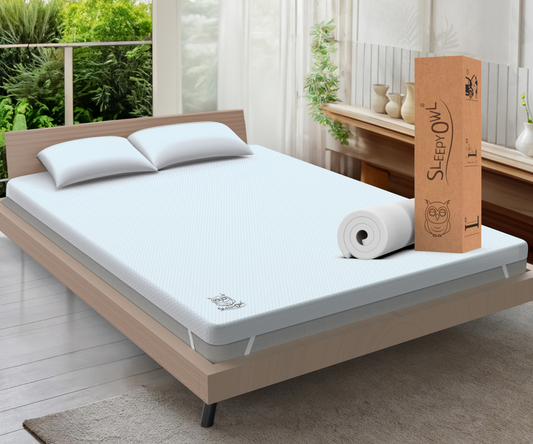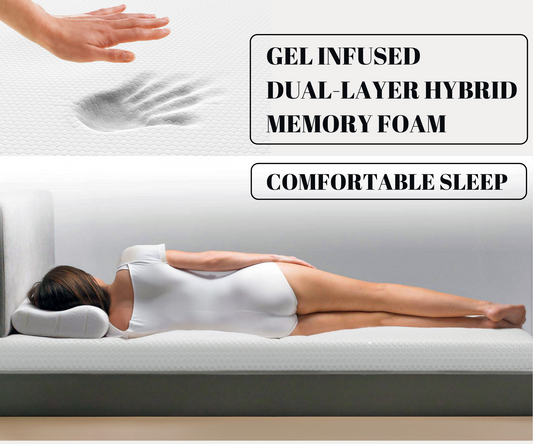Stay away from your phone before going to sleep
The prevalence of smartphones in modern society has transformed the way we communicate, access information, and entertain ourselves. However, the habit of using these devices before bedtime can have detrimental effects on sleep quality. Engaging with your phone in the hours leading up to sleep often leads to increased mental stimulation, making it difficult for the brain to transition into a restful state.
The content consumed—whether it be social media, news articles, or videos—can provoke emotional responses that heighten anxiety or excitement, further complicating the process of winding down for the night. Moreover, the act of scrolling through notifications or messages can create a sense of urgency that disrupts relaxation. This constant engagement with technology can lead to a cycle of over-stimulation, where the brain remains active and alert instead of preparing for sleep.
As a result, individuals may find themselves lying awake, unable to quiet their thoughts or drift off into slumber. The cumulative effect of these habits can lead to chronic sleep deprivation, which is associated with a host of health issues, including impaired cognitive function, weakened immune response, and increased risk of chronic conditions such as obesity and diabetes. Check out this amazing Memory Foam Mattress Topper for a better night's sleep.
The Impact of Blue Light on Sleep Quality
One of the most significant factors contributing to the negative effects of phone use before bed is the emission of blue light from screens. Blue light has a wavelength that is particularly effective at suppressing the production of melatonin, the hormone responsible for regulating sleep-wake cycles. When individuals expose themselves to blue light in the evening, they inadvertently signal their bodies that it is still daytime, which can delay the onset of sleep and reduce overall sleep quality.
Research has shown that exposure to blue light in the hours leading up to bedtime can lead to shorter sleep duration and poorer sleep quality. A study published in the journal "Sleep Health" found that participants who used devices emitting blue light before bed experienced significant disruptions in their sleep patterns compared to those who refrained from screen time. This disruption not only affects how quickly one falls asleep but also impacts the depth and restorative quality of sleep achieved throughout the night.
As a result, individuals may wake up feeling less refreshed and more fatigued, perpetuating a cycle of poor sleep hygiene.
The Disruption of Circadian Rhythms
Circadian rhythms are the natural biological processes that regulate the sleep-wake cycle over a 24-hour period. These rhythms are influenced by external cues such as light and darkness, which help signal when it is time to be awake and when it is time to rest. The use of smartphones before bed can significantly disrupt these rhythms by introducing artificial light into an environment that should be conducive to relaxation and sleep.
When individuals engage with their phones late at night, they may inadvertently shift their circadian rhythms, leading to a misalignment between their internal biological clock and external environmental cues. This misalignment can result in difficulty falling asleep at the desired time, waking up during the night, or experiencing early morning awakenings. Over time, such disruptions can lead to chronic sleep disorders and exacerbate existing health issues.
For instance, studies have indicated that individuals with disrupted circadian rhythms are at a higher risk for mood disorders such as depression and anxiety, highlighting the profound impact that technology use can have on mental health.
The Connection Between Phone Use and Insomnia
The relationship between phone use before bed and insomnia is increasingly recognized in both clinical settings and research studies. Insomnia is characterized by difficulty falling asleep, staying asleep, or waking up too early and not being able to return to sleep. The habitual use of smartphones in the evening can contribute to these symptoms by fostering an environment that is not conducive to relaxation.
For many individuals, the act of checking emails or social media can create a sense of obligation or anxiety that makes it difficult to unwind. This psychological component is compounded by the physiological effects of blue light exposure, which further inhibits melatonin production. A study published in "JAMA Internal Medicine" found that individuals who frequently used their phones before bed reported higher levels of insomnia symptoms compared to those who limited their screen time.
This connection underscores the importance of recognizing how technology habits can influence sleep patterns and overall well-being.
Tips for Creating a Phone-Free Bedtime Routine
Establishing a phone-free bedtime routine can significantly improve sleep quality and promote healthier habits. One effective strategy is to set a specific time each evening when all electronic devices are turned off—ideally at least an hour before bedtime. This allows the mind to transition away from the distractions and stimuli associated with technology and prepares the body for rest.
In place of screen time, individuals can engage in calming activities such as reading a physical book, practicing mindfulness or meditation, or enjoying a warm bath. These activities not only help signal to the body that it is time to wind down but also promote relaxation and reduce stress levels. Additionally, creating a comfortable sleep environment—such as dimming lights and ensuring a cool room temperature—can further enhance the effectiveness of a phone-free routine.
The Benefits of Using a Memory Foam Mattress Topper
In addition to establishing a phone-free bedtime routine, investing in quality sleep products can significantly enhance overall sleep quality. One such product is a memory foam mattress topper, which provides additional support and comfort for those who may not have access to an optimal mattress. Memory foam conforms to the body's shape, distributing weight evenly and alleviating pressure points that can lead to discomfort during sleep.
The benefits of using a memory foam mattress topper extend beyond mere comfort; they also contribute to improved spinal alignment and reduced motion transfer between sleeping partners. This means that individuals are less likely to be disturbed by their partner's movements during the night, leading to more uninterrupted sleep cycles. Furthermore, many memory foam toppers are designed with temperature-regulating properties that help maintain an ideal sleeping temperature throughout the night, addressing another common barrier to restful sleep.
Other Strategies for Improving Sleep Quality
Beyond creating a phone-free bedtime routine and utilizing supportive sleep products like memory foam mattress toppers, there are several other strategies that can enhance sleep quality. One effective approach is maintaining a consistent sleep schedule by going to bed and waking up at the same time each day, even on weekends. This consistency helps regulate the body's internal clock and can improve overall sleep patterns.
Incorporating relaxation techniques into daily routines can also be beneficial. Practices such as yoga, deep breathing exercises, or progressive muscle relaxation can help reduce stress levels and prepare the body for restful sleep. Additionally, being mindful of dietary choices in the hours leading up to bedtime is crucial; avoiding heavy meals, caffeine, and alcohol can prevent disruptions in sleep quality.
The Importance of Prioritizing Sleep for Overall Health and Well-being
Prioritizing sleep is essential for maintaining overall health and well-being. Quality sleep plays a critical role in cognitive function, emotional regulation, and physical health. Chronic sleep deprivation has been linked to various health issues, including cardiovascular disease, obesity, diabetes, and weakened immune function.
Furthermore, adequate sleep is vital for mental health; it helps regulate mood and reduces the risk of anxiety and depression. In today's fast-paced world, where productivity often takes precedence over self-care, it is crucial to recognize the value of restorative sleep. By understanding the negative effects of phone use before bed and implementing strategies to improve sleep hygiene, individuals can foster healthier habits that promote better sleep quality.
Ultimately, prioritizing sleep is not just about feeling rested; it is an investment in long-term health and well-being that pays dividends across all aspects of life.
FAQs
Why should I stay away from my phone before going to sleep?
Using your phone before bed can disrupt your sleep patterns and make it harder to fall asleep. The blue light emitted by screens can suppress the production of melatonin, a hormone that regulates sleep.
How does using my phone before bed affect my sleep?
Using your phone before bed can delay the onset of REM sleep, reduce the total amount of REM sleep, and lead to poorer sleep quality overall. This can result in feeling groggy and less alert the next day.
What are some alternatives to using my phone before bed?
Instead of using your phone before bed, you can try reading a book, practicing relaxation techniques, or engaging in a calming bedtime routine to help prepare your body for sleep.
How long before bed should I stop using my phone?
Experts recommend stopping phone use at least 30 minutes to an hour before bed to allow your body to start producing melatonin and prepare for sleep.
Are there any long-term effects of using my phone before bed?
Consistently using your phone before bed can contribute to chronic sleep problems, such as insomnia, and may also increase the risk of developing other health issues, such as depression and anxiety.


